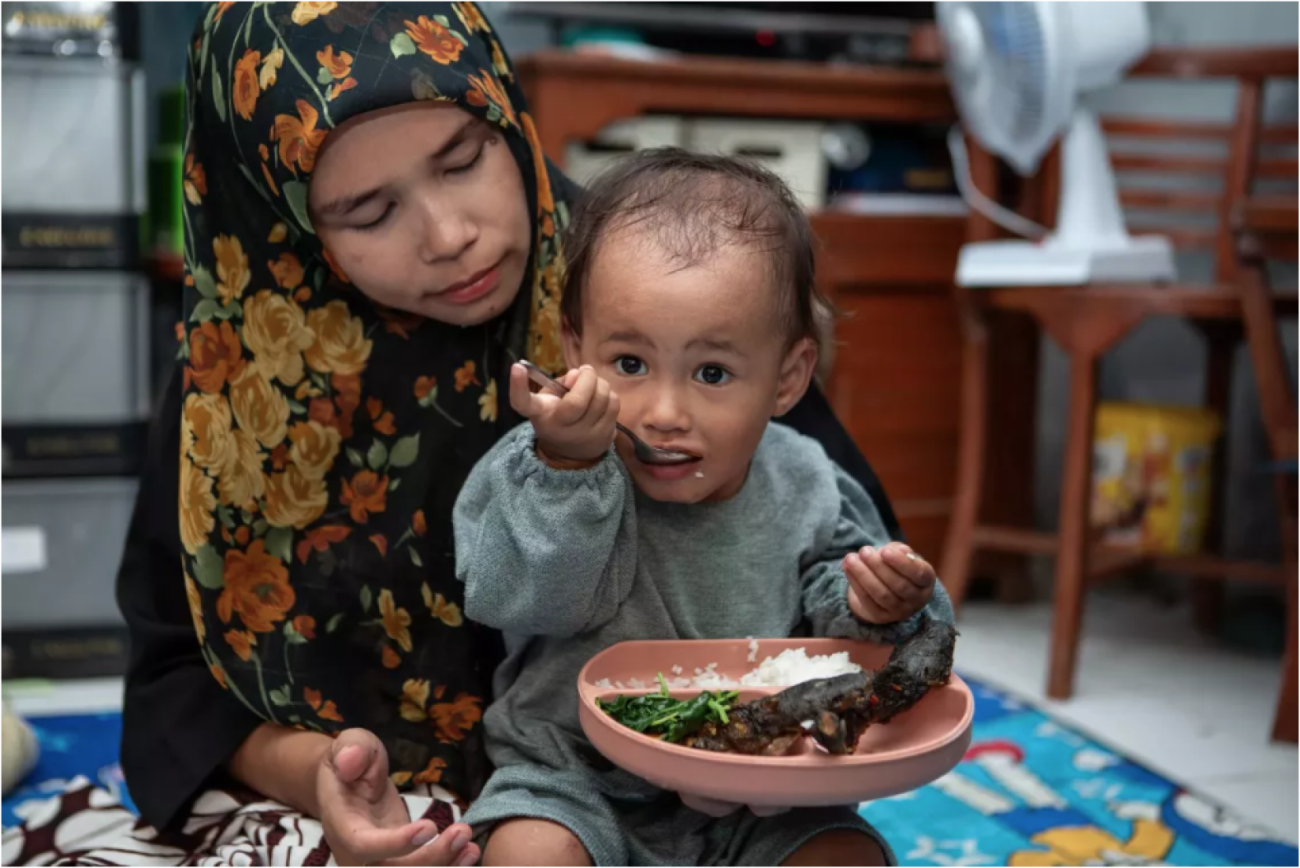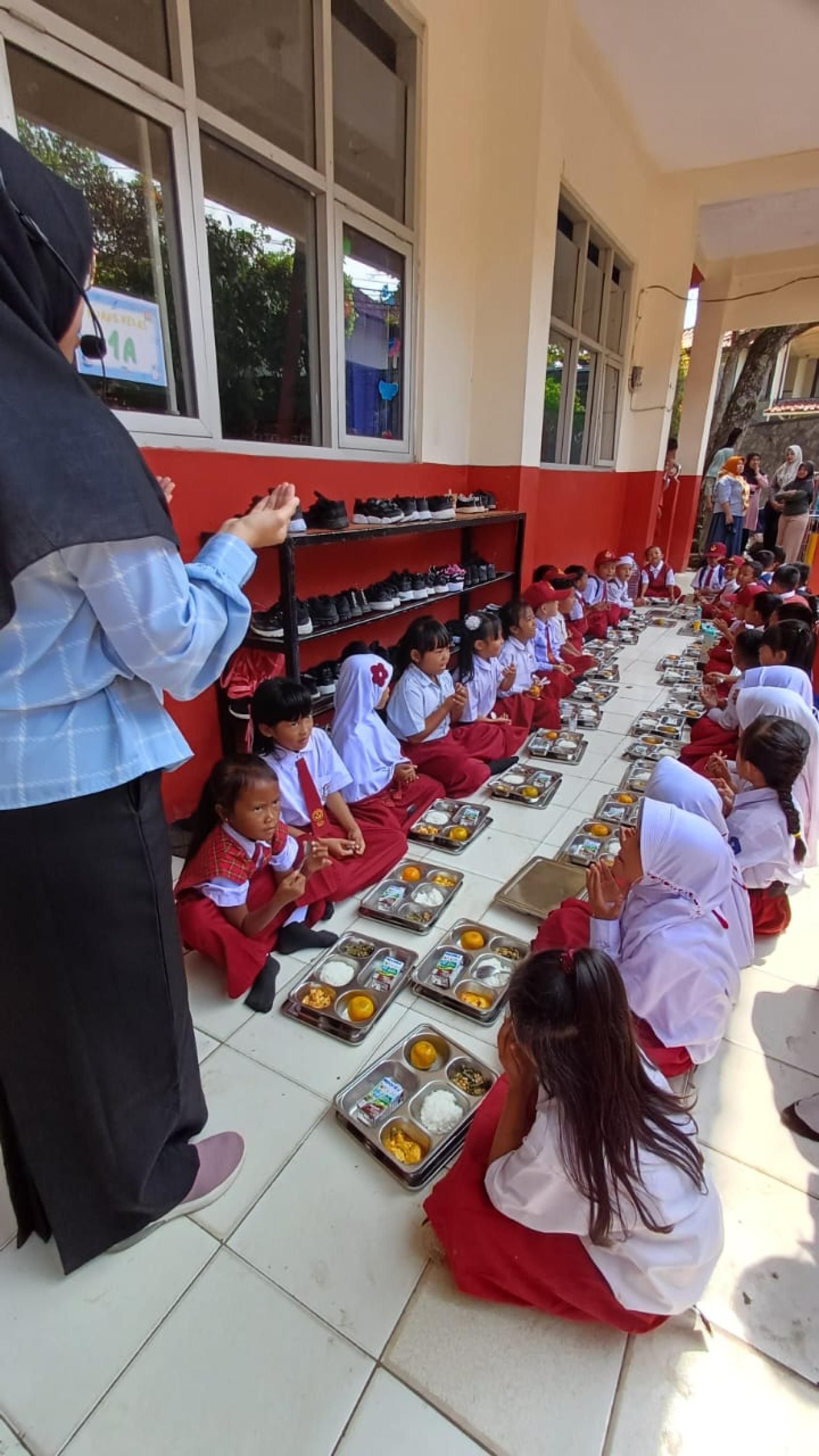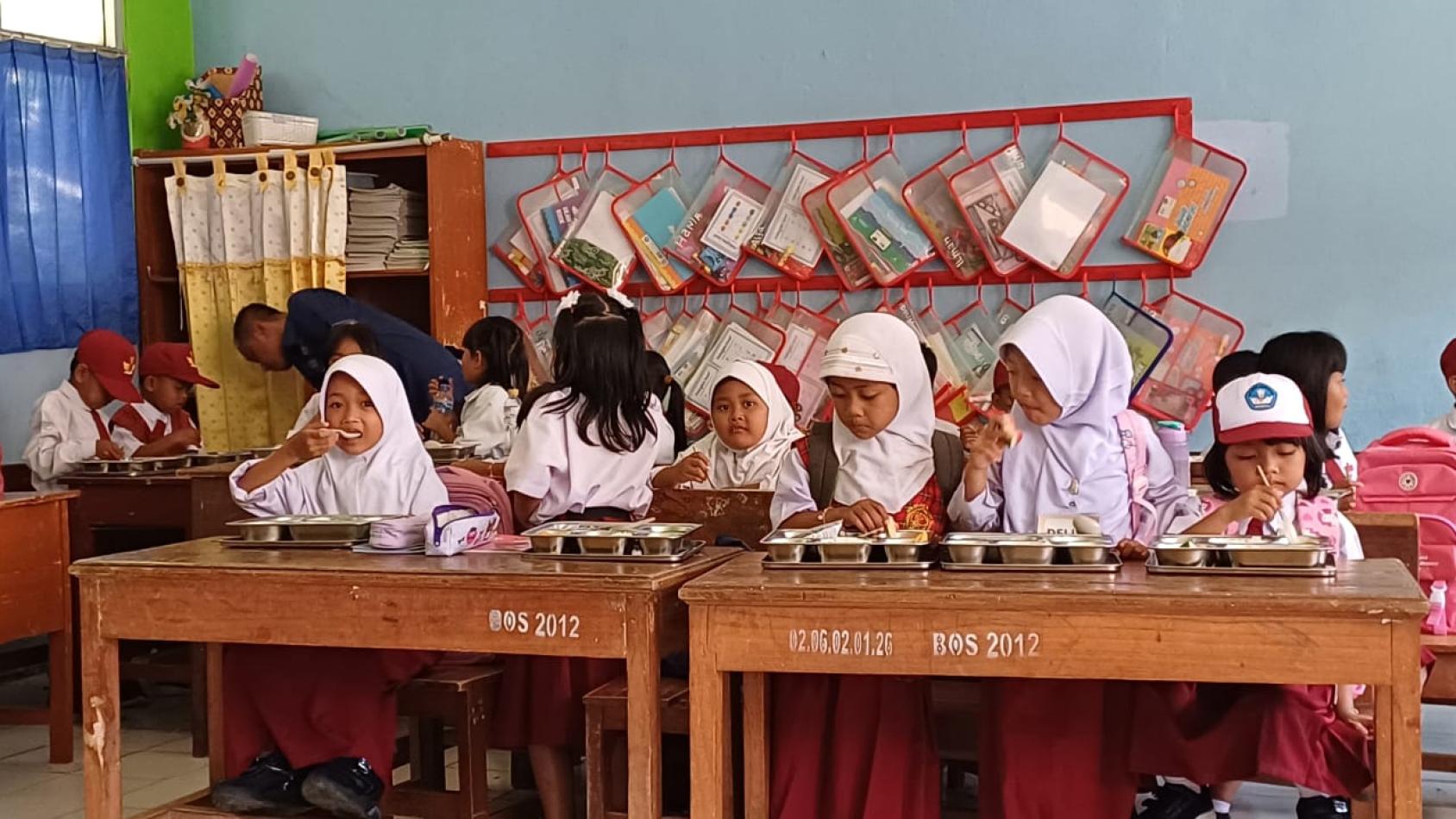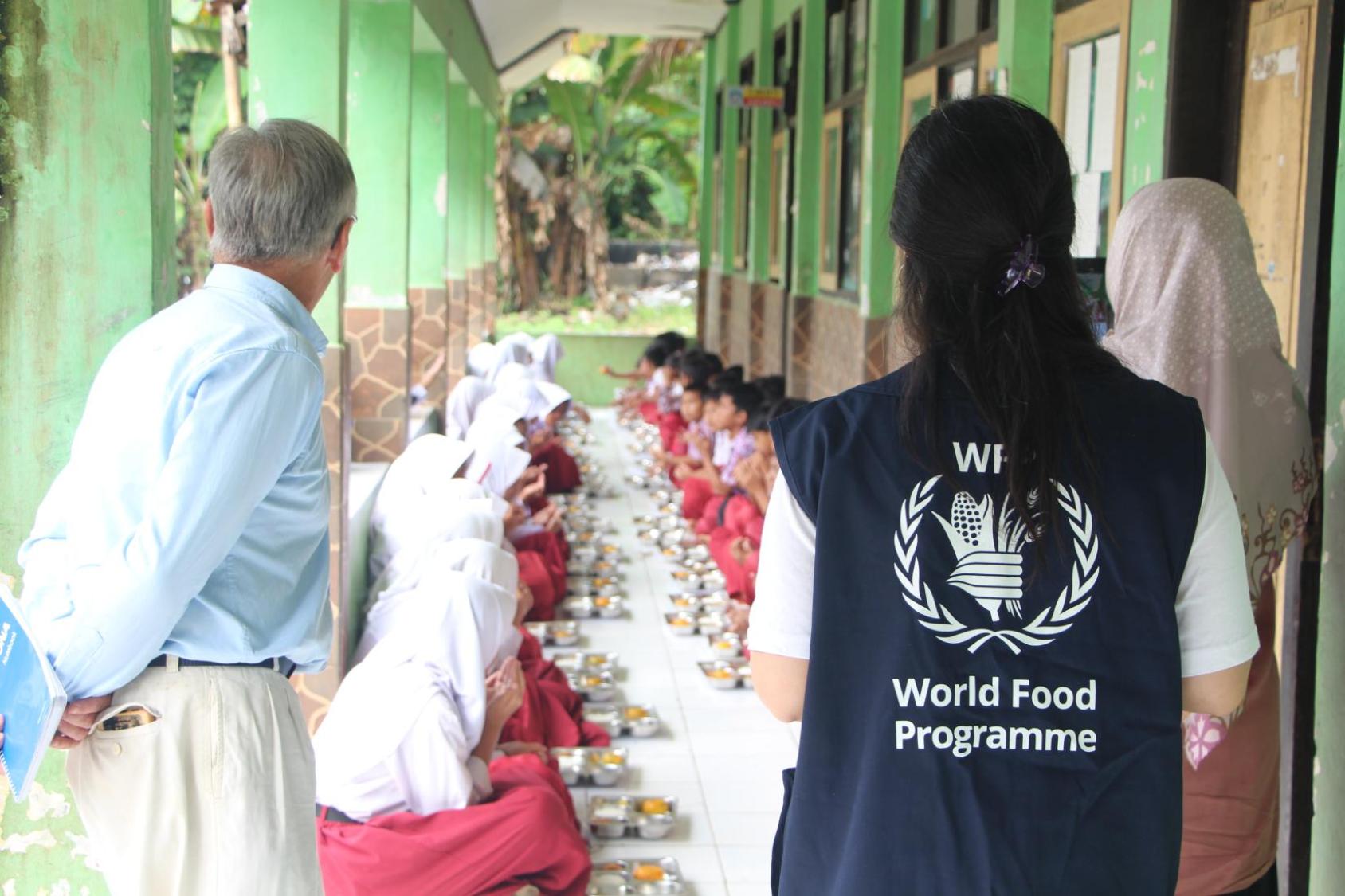Lunchtime is Changing, and it Changes Lives

How the UN in Indonesia is helping transform school meals in West Java and strengthen food systems
At SDN Bojongkoneng 03 in West Java, lunchtime used to be a scramble. Children came to school without breakfast, grabbed snacks from roadside stalls, or cobbled together whatever meals they could find on campus. When Emalia Fatimah became headmaster two years ago, she dreamed of helping students build healthier habits, but lacked the tools to make it happen.
That began to change in 2023, when the Free Nutritious Meals programme, known locally as Makan Bergizi Gratis (MBG), arrived at her school. First, a local caterer delivered basic meals. A few months later, the National Nutrition Agency (BGN) stepped in, turning the pilot into a fully structured programme. “We were grateful,” Emalia recalls. “Once BGN took over, [everything] became structured.”

A new lunchtime culture takes root
As coordinator for the Nutritional Fulfilment Service Unit (SPPG) in Babakan Madang, Emalia became the bridge between the programme’s goals and daily life at school. She set meal schedules, organized how and where students ate, and introduced simple rules that slowly reshaped habits.
Before MBG, teachers handled meals on their own. In the Sundanese tradition of bancakan, students gather in the fields to eat together. With support from the UN Children’s Fund (UNICEF), these practices became more structured. Emalia recalls how teachers and kitchen staff received training on hygiene, food safety and meal preparation. “We learned things we had been overlooking,” she says.
Now, students wash their hands, sit at tables, and use utensils they keep in their classrooms. Meals arrive in an orderly way, and the children know the routine: line up, serve, sit down and eat.

How school meals change children’s lives
The changes go beyond lunchtime. Students who once filled up on packaged snacks now look forward to their meals, knowing something fresh and healthy is coming. They are trying foods they used to avoid, like vegetables, fish and other proteins, and discovering that great food does not have to be expensive or complicated.
“Children used to bring rice with noodles, not realizing both were carbohydrates,” Emalia explains. “Now they bring meals that [reflect what they’ve learned from] MBG: rice, vegetables, and protein from chicken, eggs or fish.”
The new habits are spreading beyond the schoolyard. Children are saving pocket money because they are full from lunch. And when something is missing from their plate, students remind each other what a balanced meal should look like.
A national effort, a global partnership
As of May 2025, since its launch in January, the MBG programme has reached over one thousand kitchens in 34 provinces, serving over 2 million beneficiaries. The Government of Indonesia aims to scale that to 30,000 kitchens by the end of the year, reaching more than 80 million people.
“The Free Nutritious Meals programme shows what is possible when strong government leadership is paired with coordinated UN support,” says UN Resident Coordinator in Indonesia Gita Sabharwal. “Each UN agency brings its expertise, from improving nutrition standards and training school kitchens, to optimising supply chains, linking farmers, and building a system designed for long term sustainability.”
The UN’s coordination is what drives the programme forward. UNICEF helps translate national policy into practice, training kitchen staff across schools. The World Food Programme (WFP) strengthens supply chains and tests innovations like AI-assisted menu planning. The Food and Agriculture Organization (FAO) uses food consumption data to refine meal quality and identify nutrition gaps. The International Fund for Agricultural Development (IFAD) and FAO also work with local farmers to ensure ingredients are locally sourced, supporting rural livelihoods while feeding children.
Beyond the meals themselves, the UN supports national initiatives to build a stronger foundation, from hygiene and nutrition standards to farmer partnerships. With this engagement, the MBG programme can keep growing, safely and sustainably.

Looking ahead
What is happening in West Java, in classrooms and kitchens, and in the way families think about food, is part of a growing transformation across Indonesia.
That shift is front and centre at the UN Food Systems Stocktake (UNFSS+4) in Addis Ababa, where countries are reviewing progress and setting the next steps for food systems to drive gains in health, education, climate action and economic opportunity.
The Free Nutritious Meals programme is already showing what those commitments look on the ground: helping children learn, supporting local farmers, and building healthier communities.
A plate of change
At SDN Bojongkoneng 03, lunchtime is no longer a scramble. It is a structured, shared moment that teaches children about nutrition, health, and community, one meal at a time.
“The MBG programme shows how a single, integrated initiative can drive large-scale investment in human capital by improving children’s nutrition, empowering local farmers, and strengthening entire communities,” RC Sabharwal added. “It is exactly the kind of integrated effort that will accelerate the Sustainable Development Goals and deliver on the promise of the Pact for the Future.”
In West Java, that promise looks like a plate of rice, vegetables and fish – a simple, nutritious meal and the beginnings of a healthier future.
To read more coordination results from Indonesia click here













